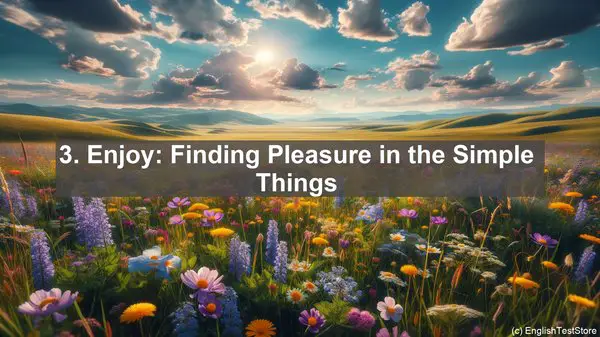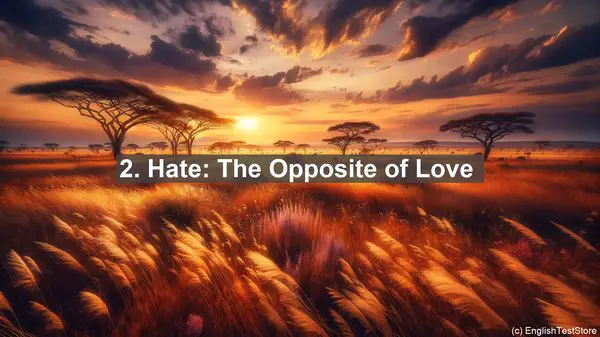Introduction: The Power of Verbs in Expressing Emotions
As language learners, we often find ourselves searching for the right words to express our emotions. While adjectives and adverbs play a crucial role, verbs have a unique power in conveying how we feel. Today, I’ll be sharing with you the top 10 English verbs that are not only versatile but also widely used in expressing a range of emotions and feelings.
1. Love: The Universal Emotion
Love, a word that transcends boundaries, is not only a noun but also a verb. When we say ‘I love you,’ it’s not just a statement; it’s an action. We express love through our words and deeds, making it one of the most powerful verbs in any language.
2. Hate: The Opposite of Love
On the other end of the spectrum, we have hate. While it may not be as pleasant as love, it’s an emotion we all experience at some point. When we say ‘I hate Mondays’ or ‘I hate spiders,’ we’re using hate as a verb to express a strong dislike or aversion.
3. Enjoy: Finding Pleasure in the Simple Things
Enjoy is a verb that signifies delight or satisfaction. Whether it’s enjoying a good book, a delicious meal, or spending time with loved ones, this versatile verb is a go-to when expressing positive emotions.
4. Despise: A Stronger Form of Dislike
While hate expresses a strong aversion, despise takes it a step further. When we say ‘I despise liars’ or ‘I despise injustice,’ we’re conveying a deep, intense feeling of dislike or even disgust.
5. Fear: The Primal Emotion
Fear, a verb that often goes hand in hand with survival, is used to express a sense of danger or apprehension. From ‘I fear heights’ to ‘I fear failure,’ this emotion is a powerful motivator.
6. Admire: Recognizing and Appreciating Excellence
Admire, a verb that signifies respect and appreciation, is often used when we’re impressed by someone’s qualities or achievements. It’s a way of expressing not just approval but also inspiration.
7. Disgust: A Strong Feeling of Revulsion
Disgust, a verb that conveys a strong sense of repulsion or distaste, is often used in situations where something is considered offensive or unpleasant. When we say ‘I’m disgusted by their behavior,’ we’re expressing a deep, visceral reaction.

8. Excite: Generating Enthusiasm and Interest
Excite, a verb that signifies a feeling of enthusiasm or anticipation, is often used when something stirs our curiosity or interest. From ‘I’m excited about the new movie’ to ‘The news excited the entire community,’ it’s a word that denotes a positive, energizing emotion.
9. Depress: A Feeling of Sadness or Dejection
Depress, a verb that signifies a state of low spirits or sadness, is often used when we’re feeling down or demotivated. It’s a word that captures the heaviness and emotional weight of such moments.

10. Surprise: The Unexpected Emotion
Last but not least, we have surprise. A verb that signifies a sudden feeling of astonishment or amazement, it’s often used when something unexpected happens. From ‘I was surprised by their generosity’ to ‘The news surprised everyone,’ it’s a word that captures the element of the unforeseen.
